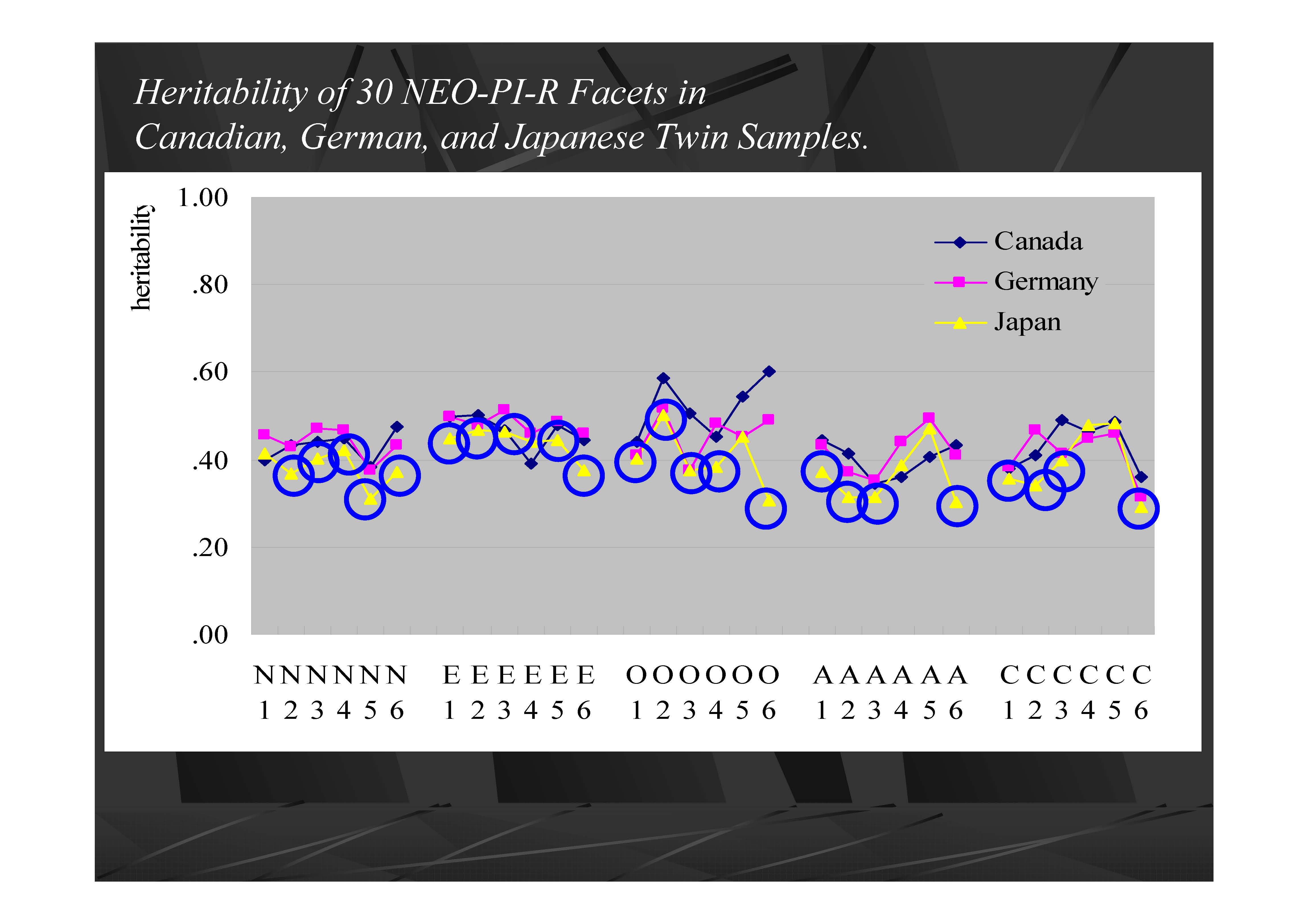

Shinji Yamagata
(University of Tokyo)
Cross-cultural differences in heritability of personality traits: Using behavioral genetics to study culture


This study examined whether strength of genetic and environmental influences on personality differ across three diverse nations: Canada, Germany, and Japan. From a sample of 1,209 monozygotic and 701 dizygotic twin pairs, genetic and environmental variances of 30 facet scales of the Revised NEO Personality Inventory were examined. Japanese sample showed lowest heritability for 23 out of 30 facet scales and highest heritability for only one facet scale. There were no systematic patterns for the order of Canadian and German sample. Examination of raw genetic and environmental variances rather than its proportion revealed that low heritability for Japanese sample could be attributed to lower genetic variances: Japanese sample showed smallest genetic variance for 23 facet scales, and highest heritability for only 3 facet scales. Also, for 21 facet scales, Canadian sample showed largest genetic variance. There were no systematic differences regarding environmental variances. These results suggest either a) gene pools of Japanese people are less polymorphic, or b) Japanese collectivistic culture does not allow people to express their genetic predispositions. Implications of behavioral genetic methods to cultural psychology are discussed.